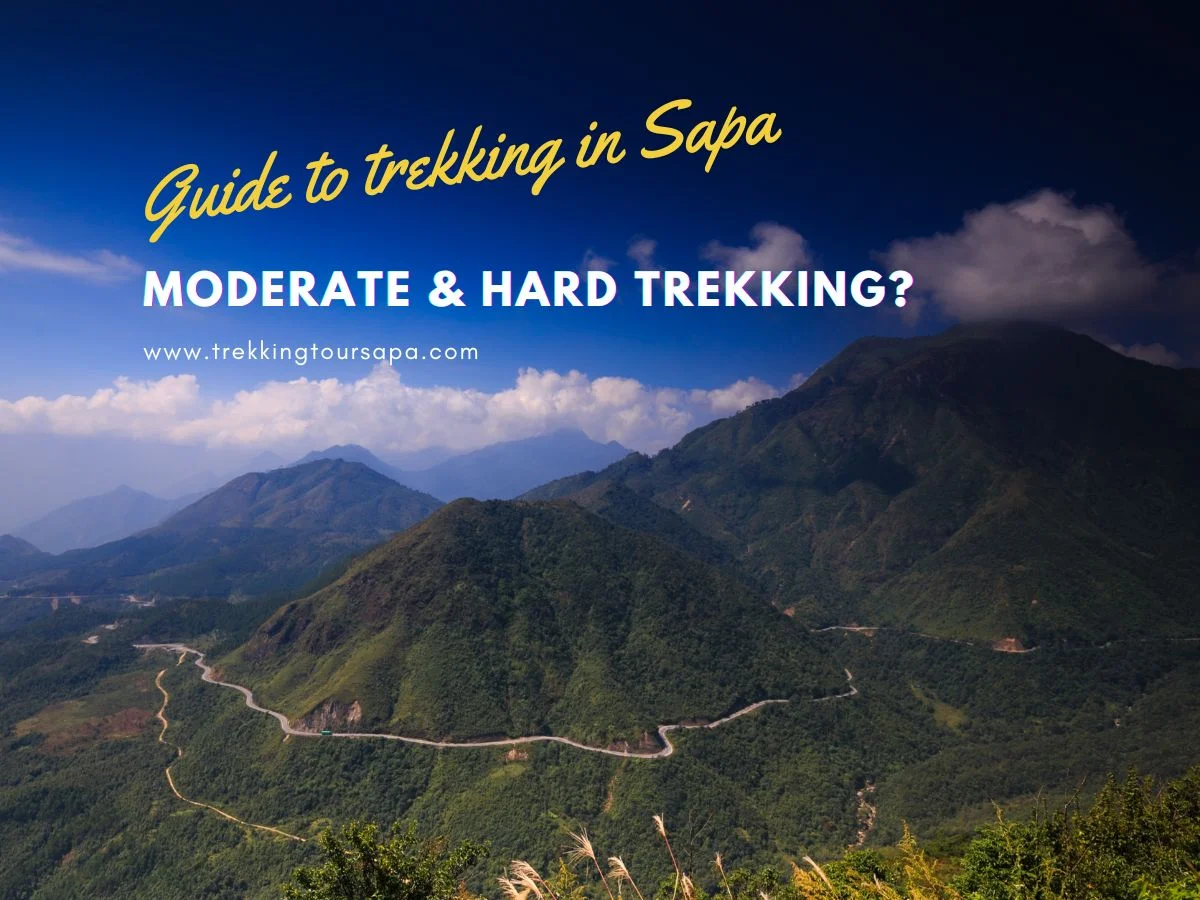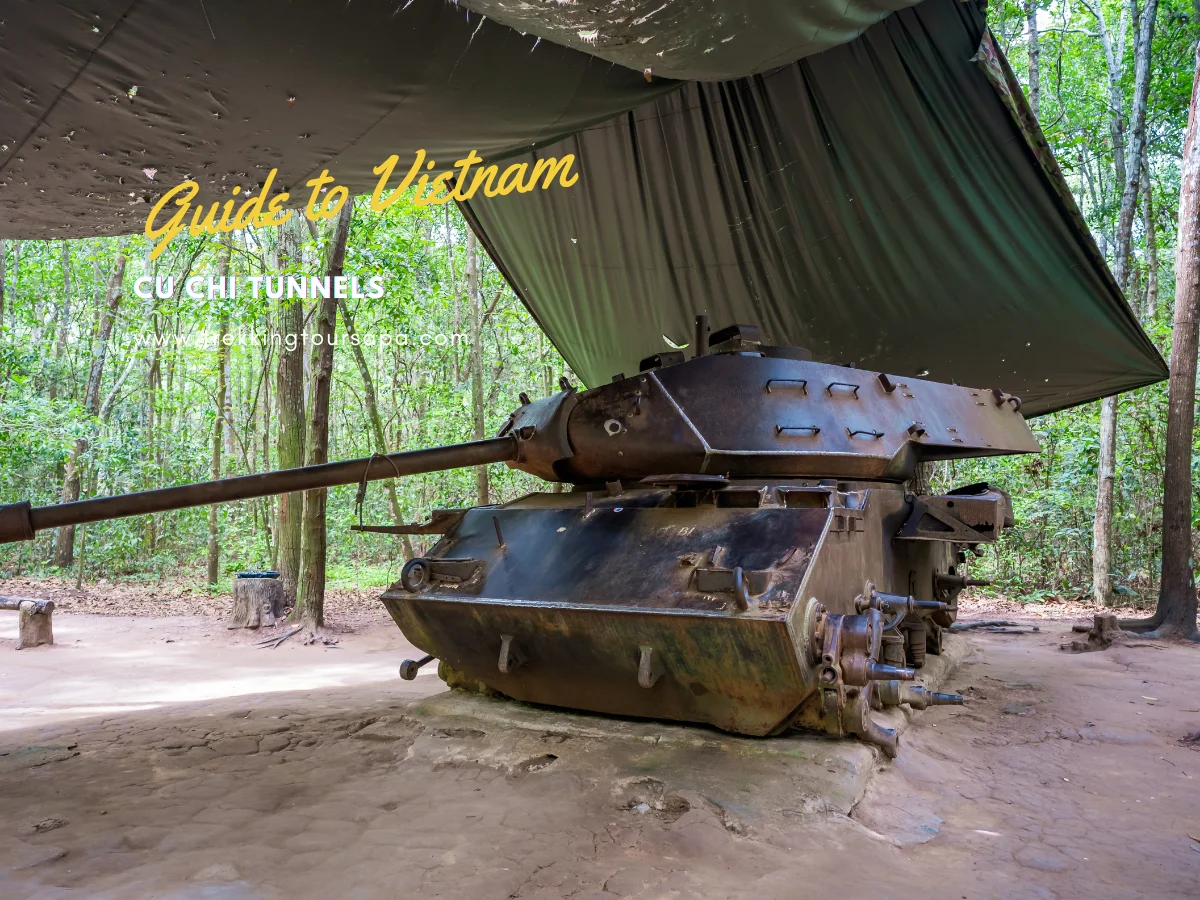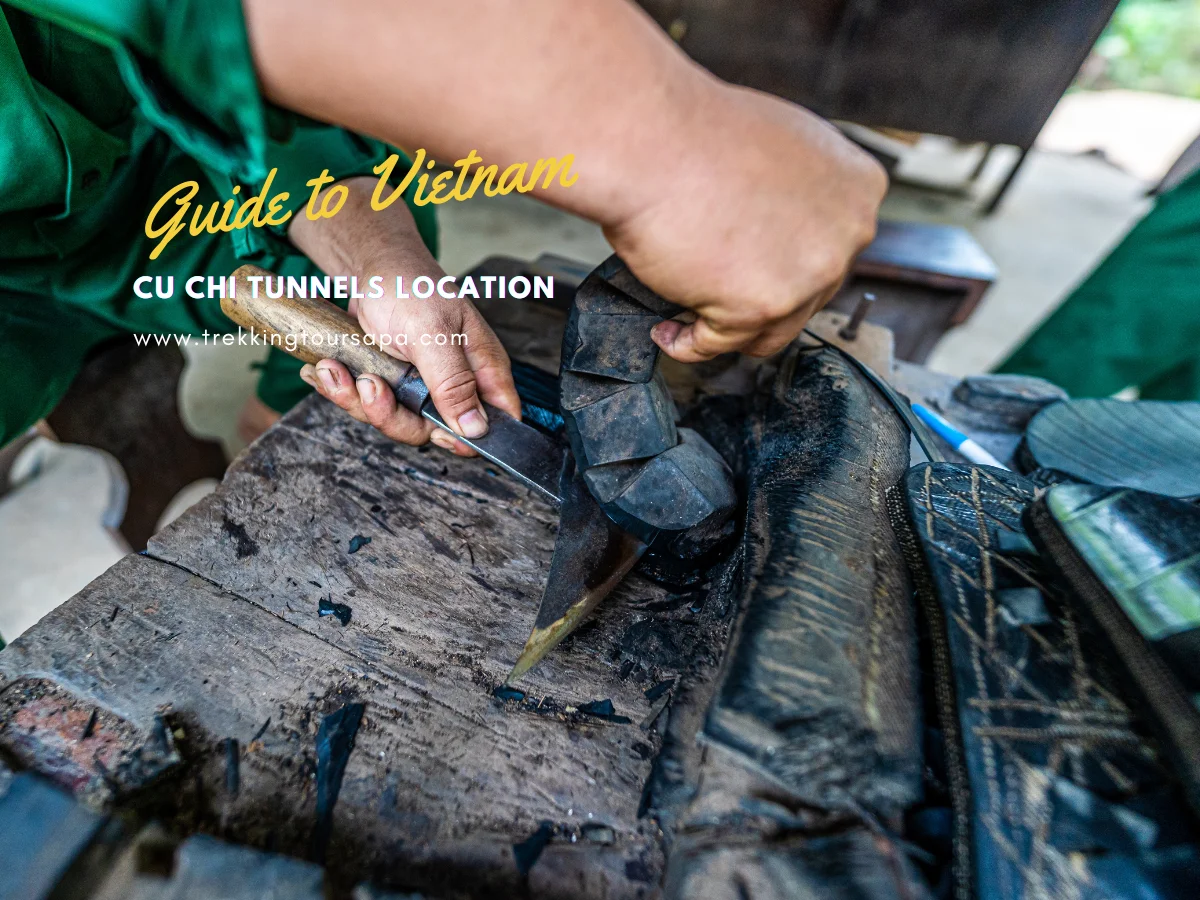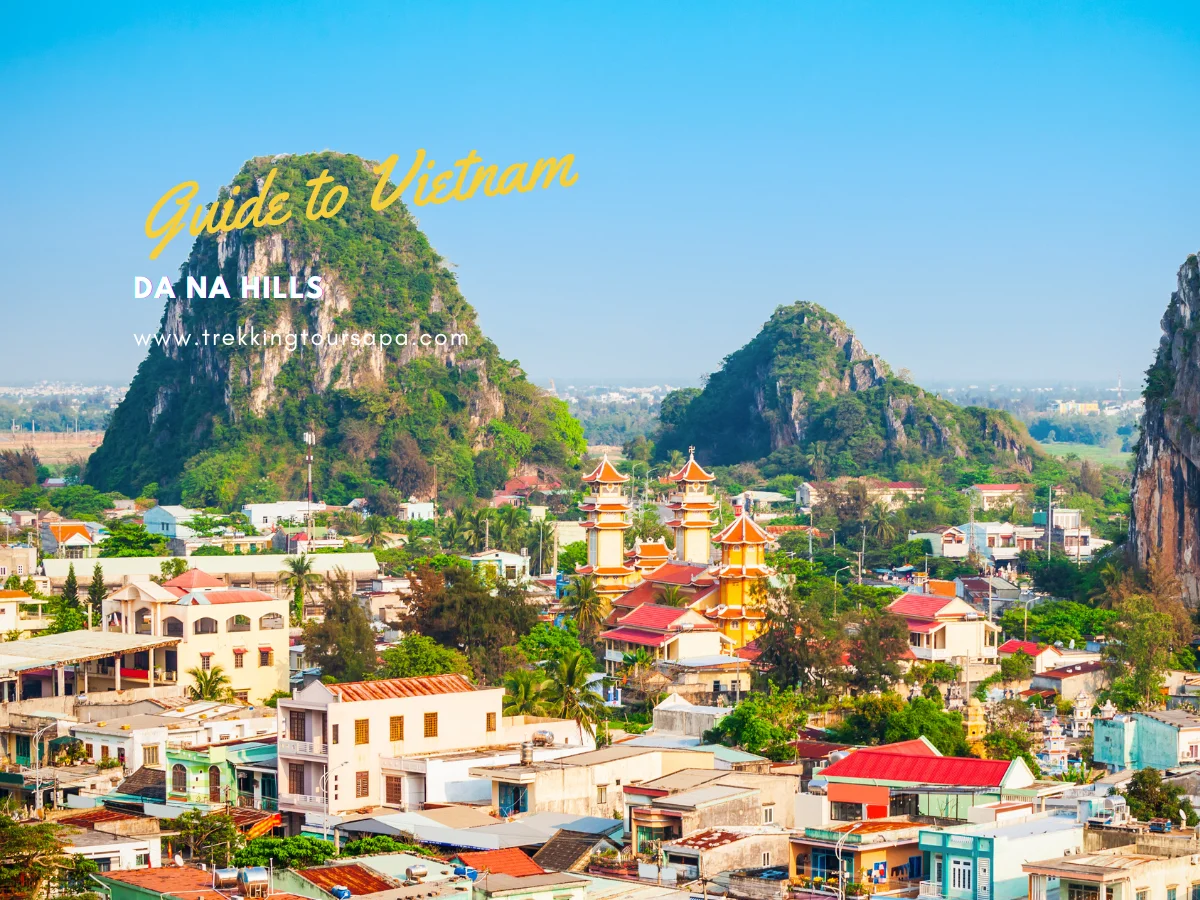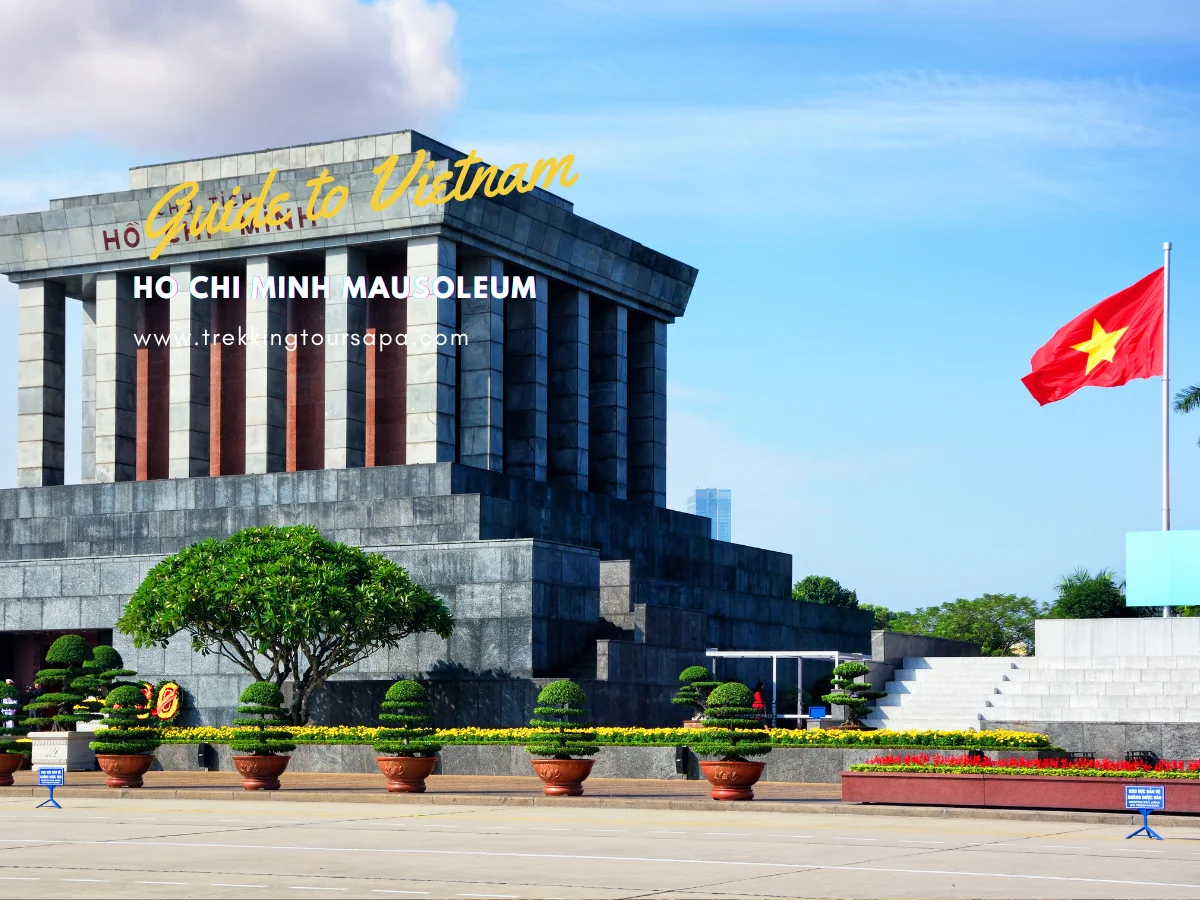Looking to escape the hustle and bustle of city life? Wanting to challenge yourself physically while immersing in nature’s beauty? Then moderate and hard trekking might just be what you need. For those seeking a break from the mundane, there is nothing quite like hitting the trails on foot. Trekking offers not only breathtaking views but also an opportunity for self-discovery and growth.
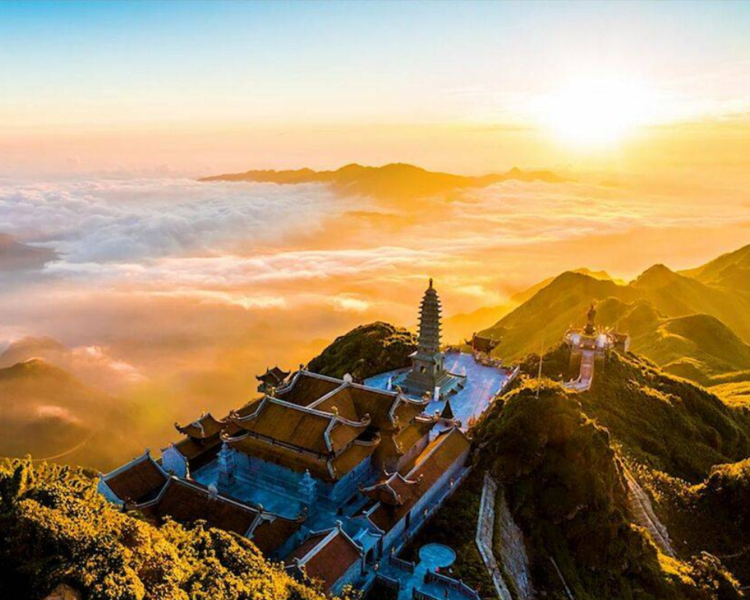
And for those who crave adventure, moderate and hard trekking can provide that extra thrill as you navigate steep inclines, rocky terrain, and unpredictable weather conditions. So pack your bags, lace up those boots, and get ready to experience the freedom of the great outdoors.
Table of Contents
ToggleWhat Is Moderate Trekking?
As a trekking writer, I often find myself comparing the journey of life to that of a mountain trail. Just as each step on the path requires mindfulness and intentionality, so too does reaching our goals in life. And just like hiking, we need motivation strategies and weather planning along the way.
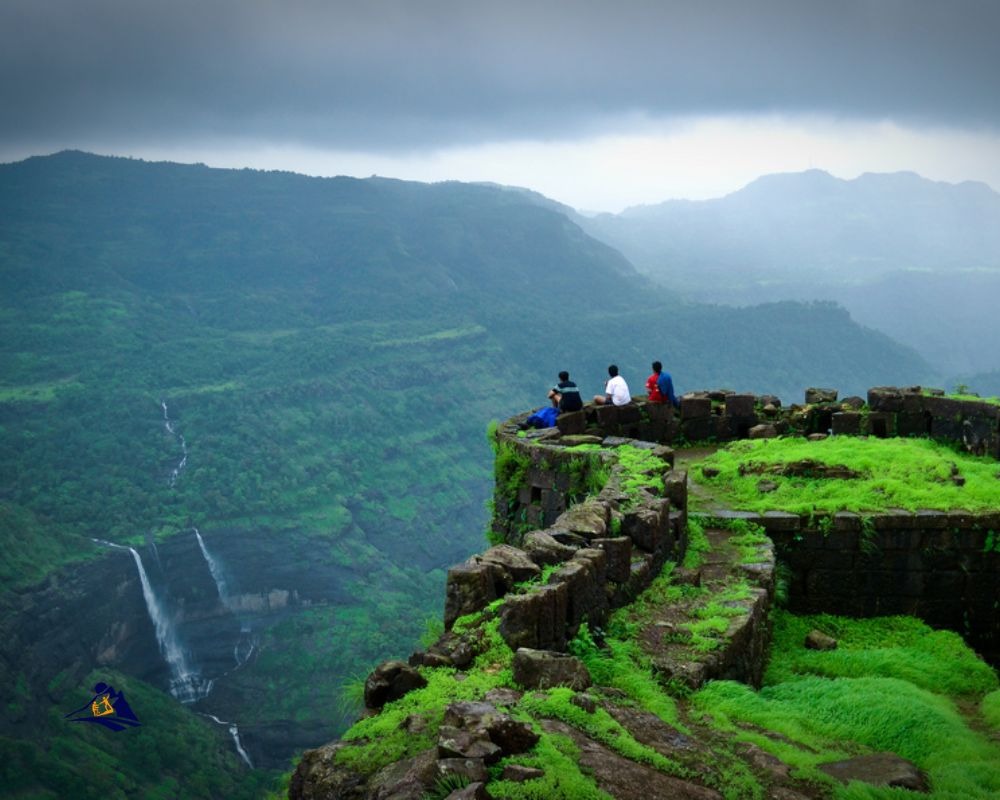
Moderate trekking can be compared to climbing a hill; it’s challenging but not too strenuous. It is an ideal choice for those who want to push themselves physically while still being able to enjoy their surroundings without completely exhausting themselves.
The terrain will vary from easy paths to rocky inclines, with enough breaks in between to keep your spirits high. With proper preparation and guidance, moderate treks are accessible even for beginners or those looking for a more leisurely adventure.
What Is Hard Trekking?
As we mentioned in the previous section, moderate trekking involves a certain level of physical activity and can be done by people with average fitness levels. On the other hand, hard trekking is for those who are up for a challenge and have experience in hiking at high altitudes.
Hard trekking requires more preparation than moderate trekking. Altitude training is essential to ensure that you are acclimatized to the altitude before starting your hike. Weather conditions also play a crucial role in hard trekking as it can change drastically from one hour to another. It’s important to keep an eye on weather forecasts and prepare accordingly.

To make your hard trekking journey enjoyable and safe, here are three essential items you should always carry:
- A reliable backpack: Choose a good-quality backpack that fits comfortably on your back and has enough space to store all your gear.
- Trekking poles: These will help you maintain balance while walking on uneven terrain or steep slopes.
- Quality hiking boots: Invest in sturdy, waterproof boots that provide adequate support for your feet during long hikes.
Now that you know what hard trekking entails and what essentials you need to carry along, let’s move on to the next step – discussing essential gear for trekking!
Essential Gear For Trekking
When it comes to moderate and hard trekking, having the right gear is crucial. Your clothing selection can make or break your experience on the trail. It’s important to choose clothes that are comfortable, breathable, and durable. Opt for moisture-wicking fabrics like nylon or polyester that will keep you dry in case of rain or sweat.
In addition to choosing the right clothing, gear maintenance is also key. Be sure to check all of your equipment before embarking on a trek. Make sure everything is working properly and replace any worn-out items such as hiking boots or backpacks. Taking care of your gear not only ensures a better experience on the trail but also helps preserve nature by preventing littering due to malfunctioning equipment.
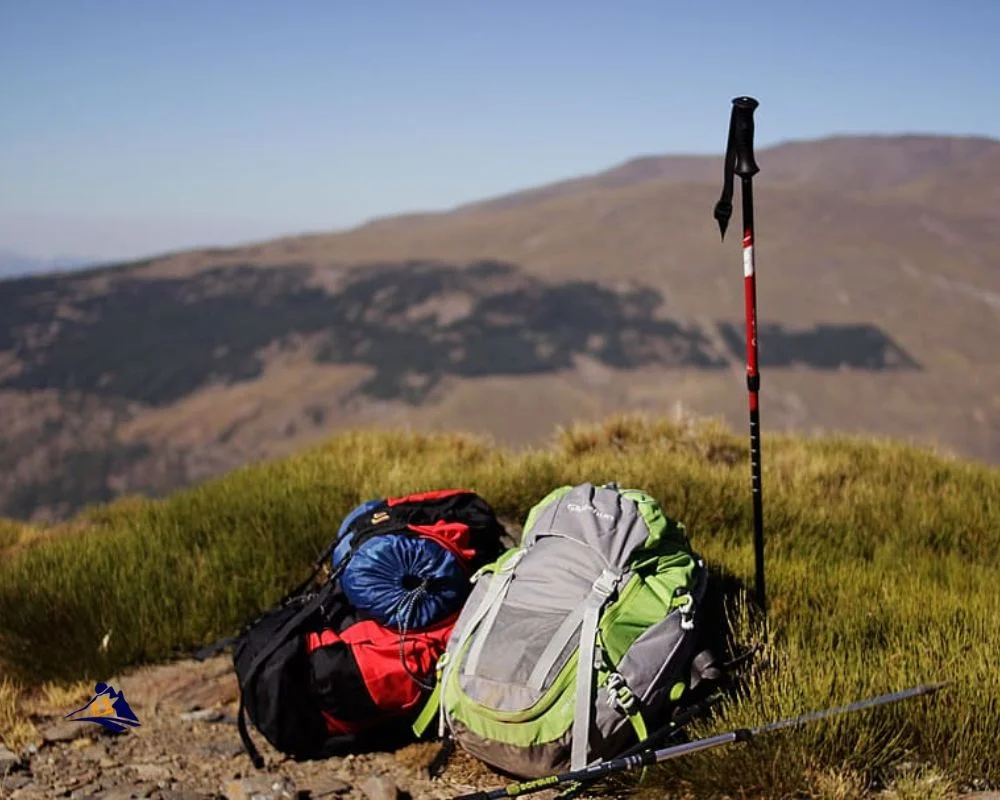
| EMOTION | ITEM | IMAGE |
|---|---|---|
| Freedom | Backpack |  |
| Adventure | Hiking boots |  |
| Preparedness | Water bottle with filter |  |
| Connection with Nature | Map & Compass |  |
When it comes to trekking, being prepared is essential. In the next section, we’ll take a look at some safety tips for trekkers so you can embark on your adventure with confidence and peace of mind.
Safety Tips For Trekkers
After gathering all the essential gear for trekking, it’s time to focus on safety tips. Trekking can be an exhilarating experience, but it is also important to keep in mind that it comes with certain risks. To ensure a safe and enjoyable trip, make sure to stay hydrated throughout your journey. Bringing along enough water bottles or hydration systems will help you avoid dehydration, especially during long hikes.
Acclimatization is another critical aspect of trekking. If you are planning on embarking on moderate & hard treks at high altitudes, make sure to acclimate properly before starting your ascent. This means taking time to adjust to higher elevations by gradually increasing altitude over several days rather than rushing up too quickly, which can lead to altitude sickness.
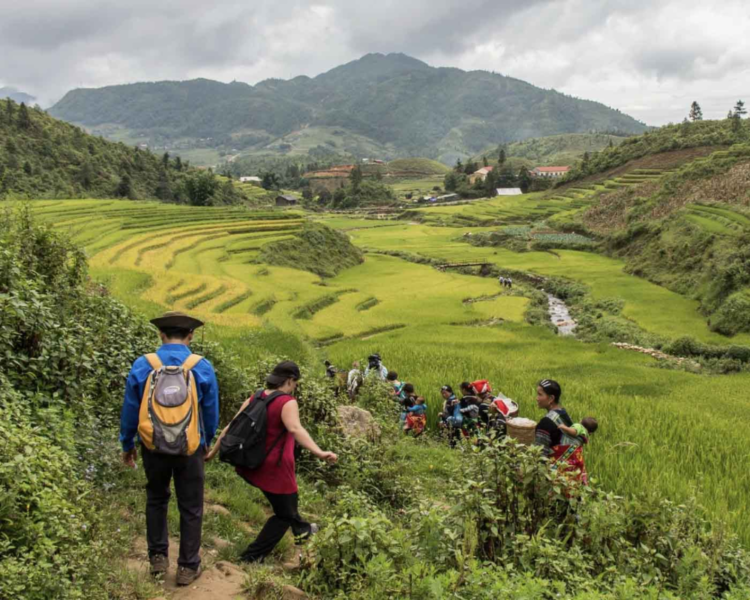
Some helpful acclimatization tips include drinking plenty of fluids (water or tea), avoiding alcohol and tobacco products, and getting adequate rest. Keep these tips in mind and enjoy a safer trek! To prepare for a moderate trek successfully, start by researching your destination thoroughly – this includes checking weather conditions and trail difficulty levels.
Next, make a list of necessary gear such as sturdy boots or shoes with good traction, comfortable clothing layers suitable for changing temperatures or weather patterns, and sunscreen protection against sunburns while outdoors during daytime hours may be needed depending upon where you’re hiking).
Finally don’t forget about staying hydrated and practicing good acclimatization habits mentioned above so that you’ll have everything needed for success when tackling challenging trails ahead!
How To Prepare For A Moderate Trek
If you’re planning for a moderate trek, it’s crucial to prepare adequately before hitting the trails. While moderate treks are less challenging than hard ones, they still require some level of physical and mental fitness.
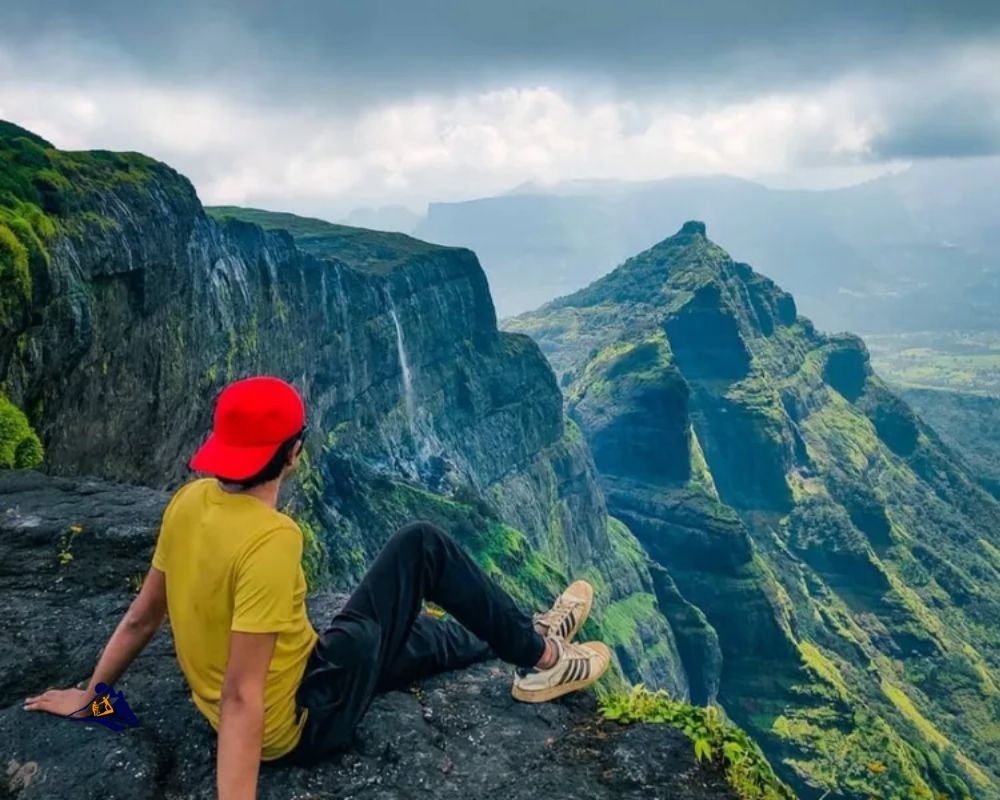
Firstly, consider your budget when preparing for a trekking trip. Trekking costs vary depending on several factors like location, duration, and the services offered by tour operators. If you plan to hire a guide or porter, factor in their fees into your budget. Also, ensure that you have enough money to cover other expenses such as food, accommodation, transportation, and emergencies.
Once you’ve sorted out your finances, begin researching potential guides who can help steer you in the right direction while showing off the beauty of the area!
How To Prepare For A Hard Trek
Congratulations, you’ve made it through a moderate trek! You may be feeling accomplished and proud of yourself, but don’t get too comfortable just yet. A hard trek is waiting for you, and it’s going to push your physical limits even further.
First things first, acclimatizing is crucial when preparing for a hard trek. This means spending some time at higher altitudes before the actual climb begins. It allows your body to adjust to the lower levels of oxygen and reduces the risk of altitude sickness. Make sure to plan extra days into your itinerary specifically for this purpose.
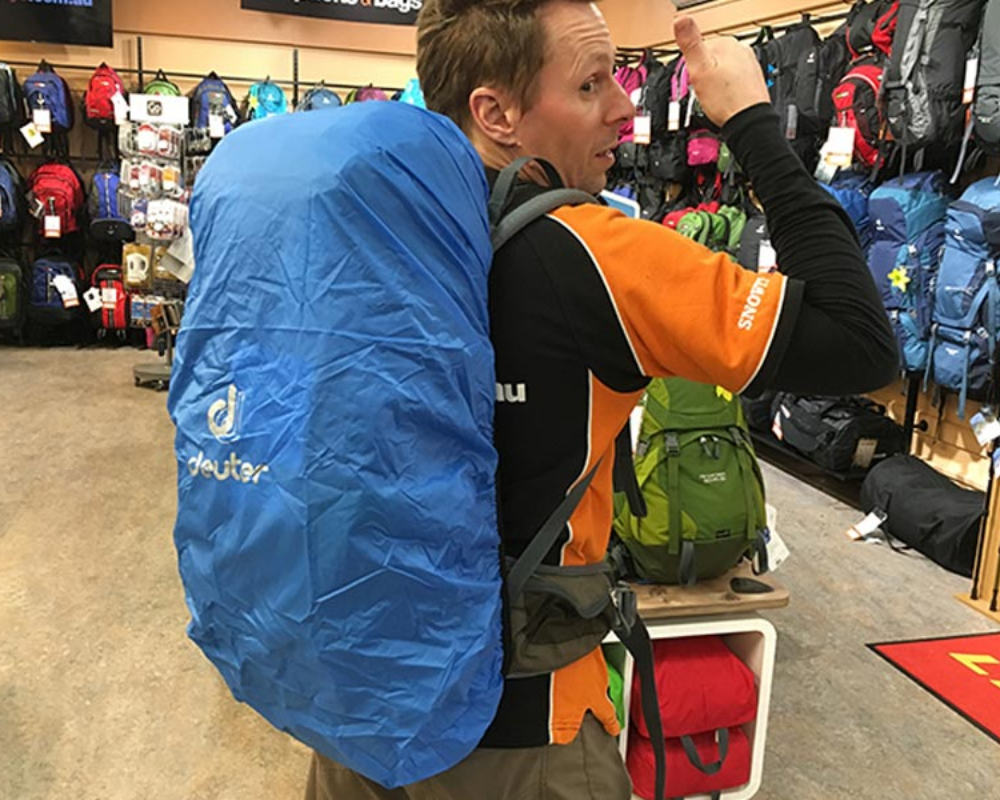
As with any trek, route planning is also important. Research the trail thoroughly and take note of potential hazards or obstacles that could arise during the journey. Have backup plans in case anything goes wrong, such as alternate routes or emergency contacts. With these preparations in place, you’ll be ready to tackle a challenging ascent like never before.
As exciting as it may sound, prepare yourself mentally and physically for what lies ahead on a hard trekking experience. The terrain will be more rugged than ever before – rocky paths or icy ridges are not uncommon on such treks – which can make progress slow while putting more strain on your muscles and mind alike.
Sapa 1 Day Tours
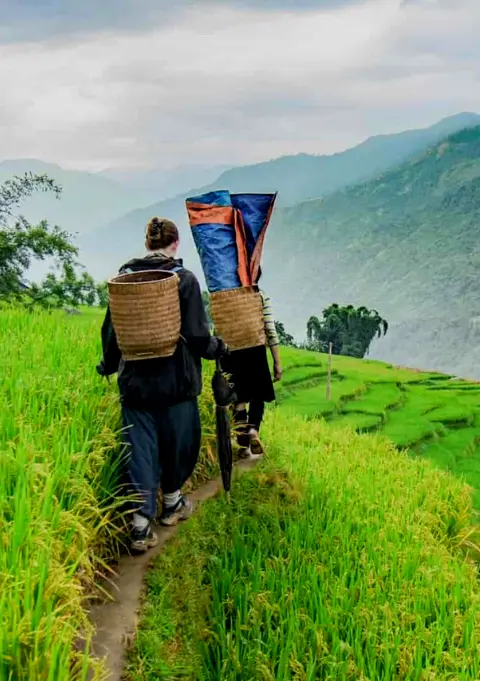
- 1 day experience
- Moderate to challenging
- Cultural immersion & active adventure
- Rice fields, valleys & villages
- Private tours
- Vegan-friendly
Sapa 2 Day Tours
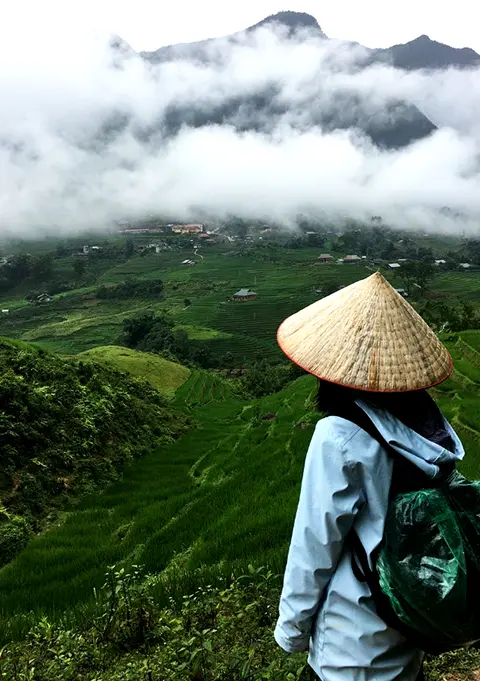
- 2 days 1 night experience
- Moderate to challenging
- Cultural immersion & active adventure
- Mountains, valleys, rice fields and villages
- Private tours
- Vegan-friendly
Sapa 3 Day Tours
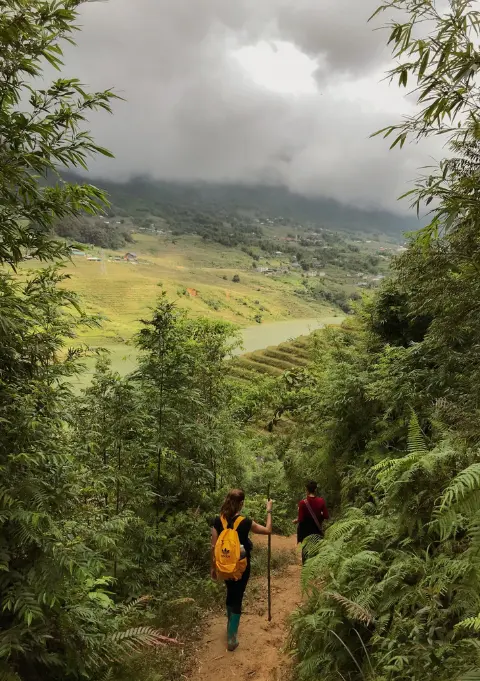
- 3 days 2 night experience
- Moderate to challenging
- Cultural immersion & active adventure
- Mountains, valley, rice fields & villages
- Private tours
- Vegan-friendly
Sapa 4 Day Tours
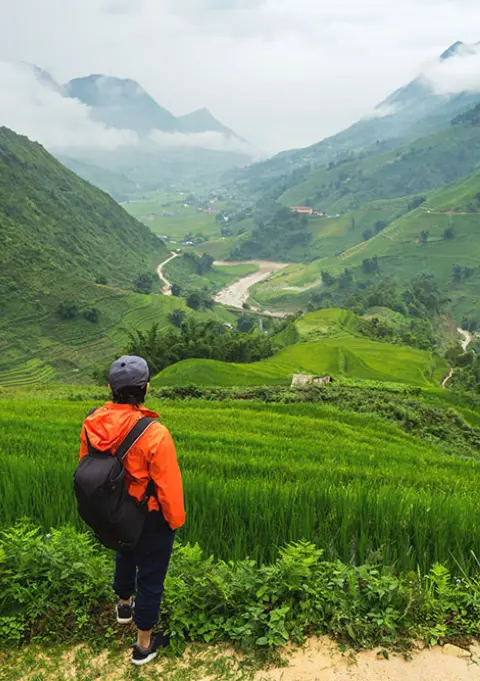
- 4 days 3 night experience
- Moderate to challenging
- Cultural immersion & active adventure
- Mountains, valleys, rice fields & villages
- Private tours – Less Touristic
- Vegan-friendly
It’s no easy feat; hence preparation should begin months in advance by improving core strength & ensuring cardiovascular endurance remains strong throughout so that one can comfortably navigate their way up steep inclines without getting exhausted quickly.
A positive mindset coupled with resilience towards unforeseen challenges that might come along the way would go a long way in making your dream summit possible!
Physical And Mental Challenges
As you embark on a moderate or hard trekking adventure, it’s important to acknowledge the physical and mental challenges that come with it.
You’ll be pushing your body to its limits, ascending steep inclines while carrying heavy gear. But beyond the physical endurance required for such an endeavor, one must also possess strong navigation skills and mental toughness.
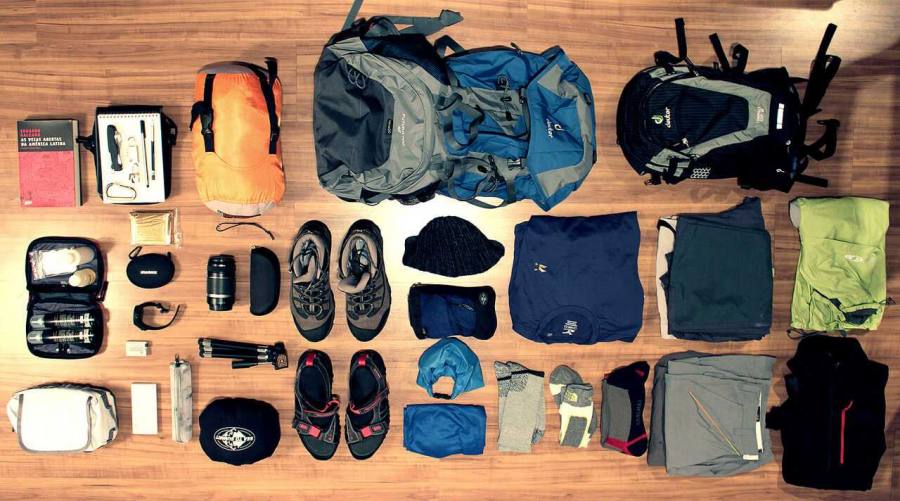
Getting lost in unfamiliar terrain can pose a serious threat to any trekker. Having good navigation skills helps ensure you stay on track and reach your destination safely.
Additionally, being mentally tough is crucial when facing unexpected obstacles or setbacks along the way. Trekking can push you out of your comfort zone, but ultimately lead to personal growth and self-discovery.
Sapa 1 Day Tours

- 1 day experience
- Moderate to challenging
- Cultural immersion & active adventure
- Rice fields, valleys & villages
- Private tours
- Vegan-friendly
Sapa 2 Day Tours

- 2 days 1 night experience
- Moderate to challenging
- Cultural immersion & active adventure
- Mountains, valleys, rice fields and villages
- Private tours
- Vegan-friendly
Sapa 3 Day Tours

- 3 days 2 night experience
- Moderate to challenging
- Cultural immersion & active adventure
- Mountains, valley, rice fields & villages
- Private tours
- Vegan-friendly
Sapa 4 Day Tours

- 4 days 3 night experience
- Moderate to challenging
- Cultural immersion & active adventure
- Mountains, valleys, rice fields & villages
- Private tours – Less Touristic
- Vegan-friendly
In the next section, we will explore some of the benefits that come from taking on these challenging treks.
Benefits Of Moderate & Hard Trekking
Moderate and hard trekking can be both physically challenging and mentally demanding. It requires a great deal of mental toughness to keep going when the trail gets tough, and physical resilience is necessary to withstand the rigors of long hikes at high elevations. However, these challenges are what make moderate and hard trekking so rewarding.
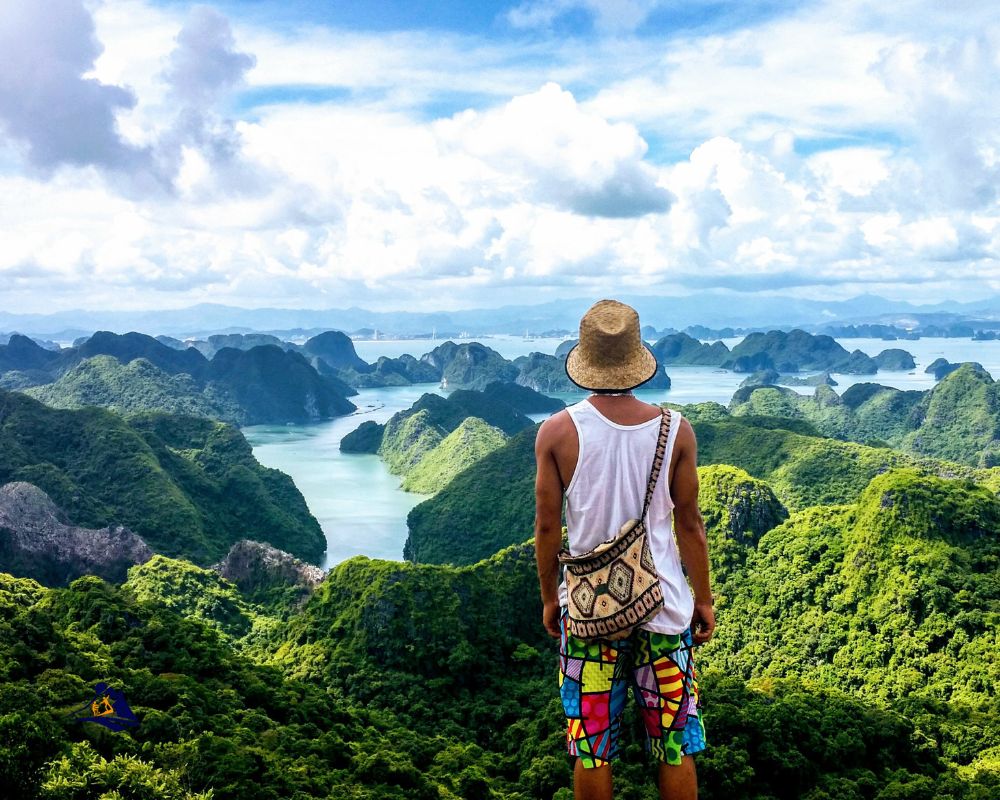
Not only does trekking challenge your body and mind, but it also helps you build self-confidence as you overcome obstacles along the way. You’ll learn to push past your limits, tap into reserves of strength you didn’t know you had, and develop a sense of independence that comes from relying on yourself in difficult situations.
All of these benefits will carry over into other areas of your life, making you more resilient and better equipped to handle whatever challenges come your way.
As we move forward onto popular trekking locations, remember that it’s not just about reaching the destination but enjoying the journey along the way.
Sapa 1 Day Tours

- 1 day experience
- Moderate to challenging
- Cultural immersion & active adventure
- Rice fields, valleys & villages
- Private tours
- Vegan-friendly
Sapa 2 Day Tours

- 2 days 1 night experience
- Moderate to challenging
- Cultural immersion & active adventure
- Mountains, valleys, rice fields and villages
- Private tours
- Vegan-friendly
Sapa 3 Day Tours

- 3 days 2 night experience
- Moderate to challenging
- Cultural immersion & active adventure
- Mountains, valley, rice fields & villages
- Private tours
- Vegan-friendly
Sapa 4 Day Tours

- 4 days 3 night experience
- Moderate to challenging
- Cultural immersion & active adventure
- Mountains, valleys, rice fields & villages
- Private tours – Less Touristic
- Vegan-friendly
Popular Trekking Locations
Himalayan treks are some of the most popular and challenging treks in the world. If you’re looking for a truly epic experience, you won’t be disappointed. On the other end of the spectrum, rainforest treks offer some fantastic opportunities to explore the lush jungles of the tropics.
Himalayan Treks
Are you ready for an adventure that will take your breath away? Himalayan treks are a must-try experience for any avid trekker. The breathtaking views of the snow-capped peaks and serene valleys will leave you in awe. But don’t be fooled, these treks require moderate to hard levels of fitness due to high altitude and steep climbs. Altitude sickness is also a potential risk, so it’s crucial to acclimatize properly before embarking on any trek. However, with proper preparation and weather forecasting, these challenges can be overcome.
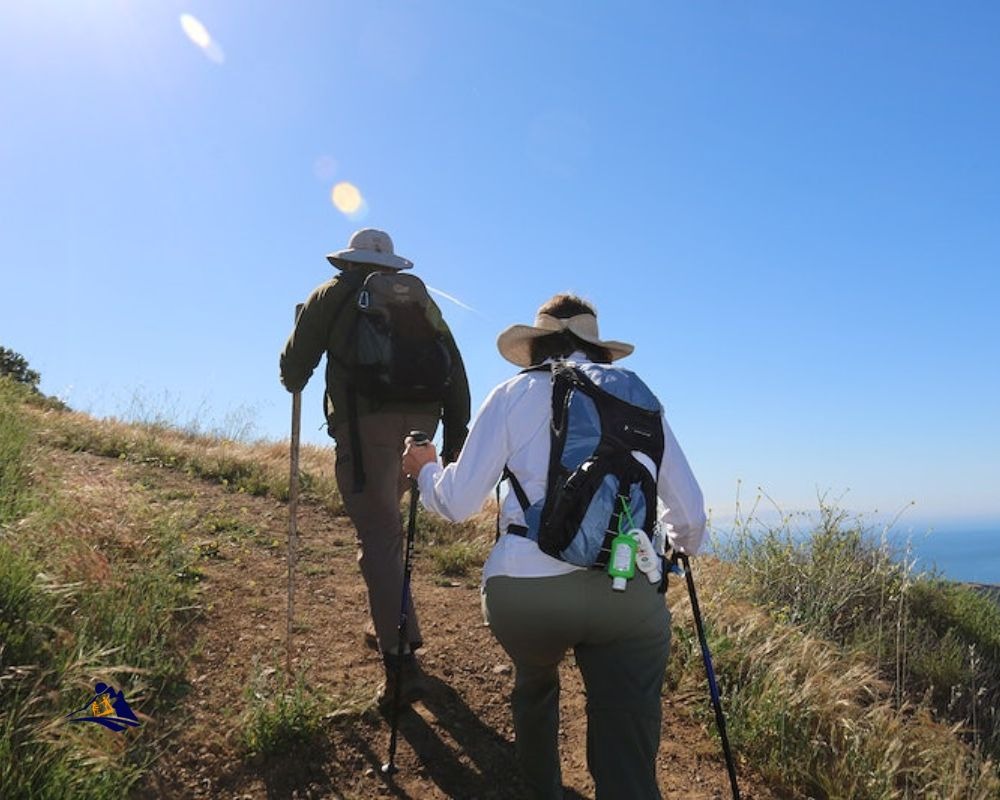
So pack your bags, grab your hiking boots, and get ready for an unforgettable journey through the majestic Himalayan mountains.
Rainforest Treks
Now, if you’re looking for a trek that’s different from the usual snow-capped peaks and valleys, then Rainforest Treks are perfect for you. These treks take you through lush green forests with exotic flora and fauna that will leave you mesmerized. Although these treks may seem easier due to lower altitude climbing than Himalayan treks, don’t be fooled as they require moderate levels of fitness due to bushwalking on rugged terrain. With proper gear and preparation though, navigating through dense rainforests can be an exhilarating experience.
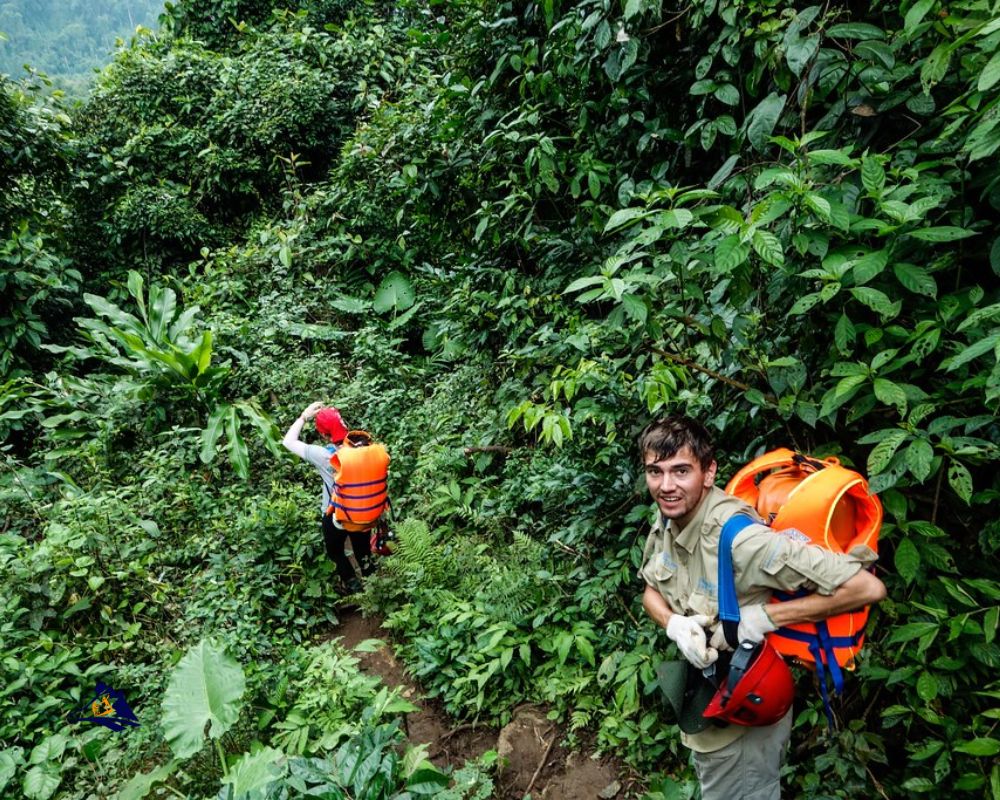
So get ready to explore the unknown depths of nature and discover your true adventurous spirit!
How To Choose A Trekking Route
As a trekking writer, I often find myself looking at maps and imagining the paths that lead to freedom. Each route is like a door that you can choose to open or leave closed. But how do you know which one to take?
One way to decide on a trekking route is by considering your fitness level and experience. If you’re new to hiking, it’s best to start with an easy trail before moving on to moderate or hard treks. This will help you gain confidence as well as build up your strength for more challenging routes. Additionally, consider the weather conditions of your chosen destination and pack accordingly – don’t forget about hiking nutrition!
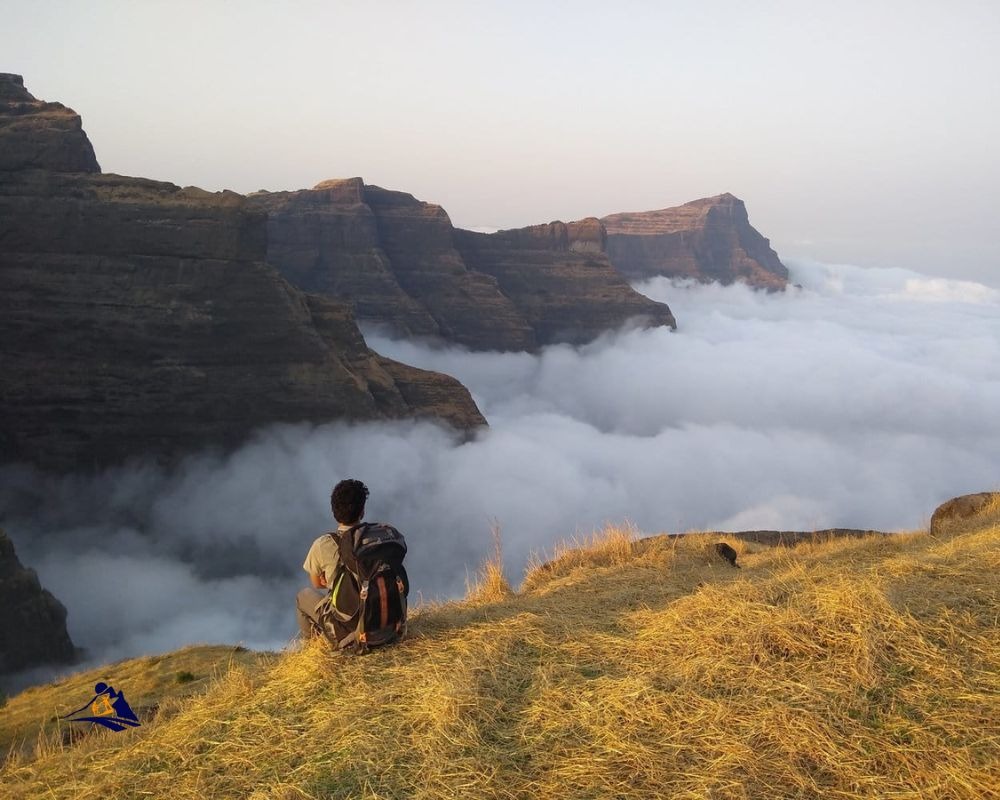
Once these decisions are made, set out on your journey knowing that every step taken leads towards self-discovery and liberation from mundane life.
As we continue our exploration of choosing a trekking route, remember that there is no right or wrong path – only what suits you best. Consider all factors including terrain difficulty, distance covered per day, altitude changes along the way, and potential risks such as wildlife encounters or extreme temperatures. With proper preparation and attention to detail regarding packing supplies (such as food), any hiker can embark on their unique adventure into the wilderness where they will undoubtedly discover a newfound appreciation for nature’s beauty while also finding inner peace through physical challenges encountered during each step forward toward completion of their personal goal(s).
Moderate & Hard Trekking? Frequently Asked Questions
What Are Some Common Injuries That Can Occur While Trekking?
Trekking is an adventure that offers a sense of freedom and accomplishment, but it can also come with its fair share of risks. It’s important to prepare your body for the physical demands of moderate & hard trekking by maintaining proper nutrition and physical conditioning.
Unfortunately, even with these precautions, injuries can still occur while out on the trail. Some common ones include sprains from uneven terrain or falls, blisters from ill-fitting shoes or socks, and dehydration from insufficient hydration.
As a trekking writer, my advice would be to take care of yourself before heading out on any adventure so you can fully enjoy the experience without worrying about potential injuries.
How Long Does It Typically Take To Complete A Moderate Or Hard Trek?
When it comes to trekking, one of the most common questions people ask is how long it takes to complete a moderate or hard trek. The answer, of course, depends on many factors such as weather conditions, trail difficulty, and your level of fitness.
However, if you are well-prepared and have taken necessary safety tips into account, then completing a moderate or hard trek can be an incredibly rewarding experience.
Whether you’re looking for an escape from daily life, seeking adventure in nature, or simply trying to challenge yourself physically and mentally – trekking offers a unique opportunity to explore some of the world’s most stunning landscapes while pushing your limits.
So pack your bags and hit the trails – there’s no better way to satisfy that subconscious desire for freedom!
What Is The Best Time Of Year To Go Trekking In Certain Locations?
When planning a trekking trip, it’s important to consider the best time of year to go to avoid altitude sickness or extreme weather conditions. While some may prefer the challenge of tackling difficult terrain during the off-season, it’s crucial to assess your level of fitness and experience before embarking on such an adventure.
For those seeking moderate or hard treks, it’s recommended to choose a season with milder temperatures and lower chances of storms. Doing so will not only ensure a safer journey but also allow for more enjoyment of the stunning landscapes along the way.
So whether you’re looking for a thrilling challenge or simply want to explore new territories, make sure to plan and choose wisely when deciding on the best time of year for your next trekking expedition.
Are There Any Age Restrictions For Moderate Or Hard Trekking?
When it comes to trekking, safety should always be a top priority. Before embarking on any moderate or hard trekking adventure, it’s important to consider age restrictions as well as weather conditions that could potentially impact the journey. Safety tips such as proper gear and equipment, adequate hydration and rest breaks, and knowing your physical limitations can make all the difference in ensuring a successful trekking experience.
As a trekker myself, I understand the desire for freedom and exploration that drives us to seek out these adventures. But remember, with great freedom comes great responsibility to prioritize safety above all else.
Can I Bring My Food And Water On A Trek, Or Do I Need To Rely On Local Resources?
When packing for a trek, it’s important to consider your food and water options.
While local resources may be available along the way, bringing your supplies ensures you have what you need when you need them. This also allows for more control over dietary needs or preferences.
Additionally, altitude sickness can be a concern on moderate and hard treks, so it’s crucial to properly acclimate before starting and to stay hydrated throughout the journey. With these packing tips in mind, trekkers can feel confident in their ability to tackle any trail while enjoying the freedom of the great outdoors.
Conclusion
So there you have it, fellow trekkers! We’ve covered some important information about moderate and hard trekking. It’s important to remember that injuries can happen while on a trek, so always be prepared with proper gear and first aid supplies. The length of time it takes to complete a trek varies depending on the difficulty level and location. Researching the best time of year to go is key to avoiding extreme weather conditions or tourist crowds.
Age restrictions may apply for certain treks due to their difficulty level, but don’t let that discourage you from exploring new adventures. With proper training and preparation, anyone can tackle a challenging trek! Lastly, when it comes to food and water, it’s always best to bring your supplies as local resources may not always be reliable. So pack those snacks and hydration packs before hitting the trails!
Remember, coincidences are often just small moments of significance that lead us down our path. May your journey be full of adventure and discovery!
Sapa 1 Day Tours

- 1 day experience
- Moderate to challenging
- Cultural immersion & active adventure
- Rice fields, valleys & villages
- Private tours
- Vegan-friendly
Sapa 2 Day Tours

- 2 days 1 night experience
- Moderate to challenging
- Cultural immersion & active adventure
- Mountains, valleys, rice fields and villages
- Private tours
- Vegan-friendly
Sapa 3 Day Tours

- 3 days 2 night experience
- Moderate to challenging
- Cultural immersion & active adventure
- Mountains, valley, rice fields & villages
- Private tours
- Vegan-friendly
Sapa 4 Day Tours

- 4 days 3 night experience
- Moderate to challenging
- Cultural immersion & active adventure
- Mountains, valleys, rice fields & villages
- Private tours – Less Touristic
- Vegan-friendly
